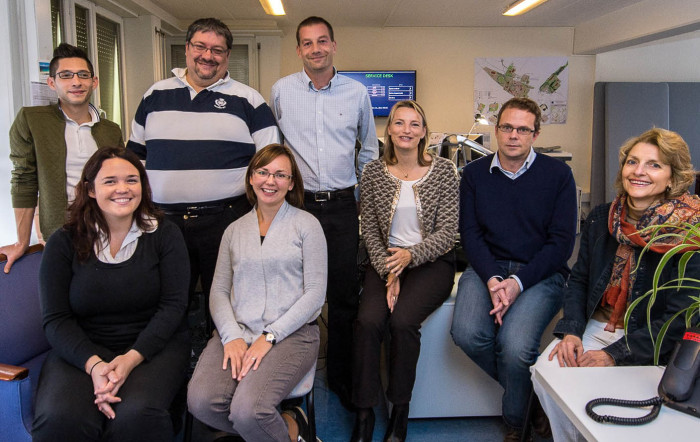One place
Ideally CERN should provide a centralized area where the most important 'user facing services' are co-located. This would greatly facilitate the life of our users who would know where to go to obtain a new access card, a new car sticker, a new French or Swiss identity card, a key, obtain help with their car plates, removal, etc.. etc..
However: realizing this dream is not possible 'over night', after explored our options, the best possible compromises for locating the CERN service desk turned out to be building 55 (for the moment).
Building 55 already houses the registration service and is a necessary stop for access cards, car stickers, etc.. Furthermore it is accessible for people without CERN card.
The service desk will not have deep knowledge of everything that exists at CERN, thus the support they can provide will be limited; however they will do all they can to facilitate, monitor and coordinate the resolution of any question or issue you may have.
Service Desk is a service offered to the service providers at CERN and never imposed; in certain cases there is no added value of the service desk (e.g. in handling tickets generated by computer center monitoring systems, or other tickets entering via very specific specialized channels).
Currently (June 2015) GS services handle ca. 88’000 tickets per year, IT ca 140’000, and 10’000 in Finance. Most IT tickets bypass the service desk; as a result service desk is involved in ca. 40% of the total number of tickets.
Service Desk Duties & Responsibilities:
Provide 1st Line support. Service Desk carries responsibility for establishing the first line of contact between with users wishing to register or submit Incidents or Service Requests.
The main responsibility of Service Desk staff is the detection and recording of all incidents and requests, ensuring that all information necessary for successful handling and resolution is obtained, recorded and updated throughout the ticket lifecycle.
Tasks
The following tasks are assigned to the service desk:
- Detecting and recording of user tickets (Incidents and Service Requests)
- Classification and initial support (sorting requests according to type, status, impact and urgency, implementing workarounds and, if possible, final solutions)
- Contact and communication with affected users and requesters
- Continuous tracking and monitoring of all open and unresolved tickets to ensure closure within defined and agreed timeframes
You can find their mandate here.

